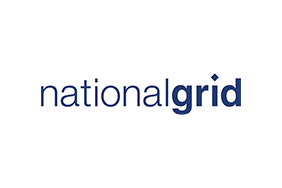National Grid Launches "Engineering Pipeline Program" to Develop Tomorrow's Workforce of Engineers
Inaugural Classes Begin in Melville and Syracuse, N.Y. and Millbury, Mass. First Step to Jumpstart Engineering Career
Published 08-17-10
Submitted by National Grid
National Grid is helping high school students from New York and New England take an important step to becoming engineers with the launch of its "Engineering Pipeline Program," the centerpiece of the company's global "Engineering Our Future" initiative designed to inspire youth and attract and develop engineers for tomorrow's workforce.
The Pipeline program kicks off Aug. 16 to 20 with the inaugural class of more than 50 high school students from across National Grid's service area in New York and New England who have been selected to participate in the development program that creates a recruitment pathway to encourage promising high school students to become engineers.
"There is a looming shortage of engineers needed to build the next generation of energy delivery systems, smart grids, and other emerging high-tech systems, so increasing the engineering workforce is an imperative not only for National Grid but for our entire industry," National Grid President Tom King said. "We welcome the inaugural class of Engineering Pipeline Scholars; they have excelled academically and have diverse interests and experience. We look forward to working with them to help develop our industry's creative problem solvers of the future."
National Grid's "Engineering Pipeline Program" offers high school and college students the chance to learn more about National Grid and the engineering profession through a structured six-year program. Engineering Pipeline Scholars will gain exposure to the engineering industry through classroom instruction, site visits, research and projects.
Highlights of the Pipeline program include opportunities for paid internships, mentoring and job shadow opportunities and social networking activities. Once accepted into the program, the Scholars must maintain a 3.3 GPA in college, pursue an engineering degree and participate in ongoing Pipeline program activities in order to be considered for fast-track employment with National Grid.
The first step in the "Engineering Pipeline Program" is the one-week "Intro to Engineering Academy" that will take place Aug. 16 to 20 at National Grid Learning Centers in Melville, Long Island; Millbury, Massachusetts and Syracuse, New York. The curriculum will include classroom and hands-on activities on the following topics: introduction to the energy industry, engineering safety, natural gas operations, electric power systems and the future of energy including Smart Grid technology. The Scholars will also develop group presentations based on engineering field exploration site visits and deliver the reports during an interactive live meeting with the other learning centers.
The inaugural class of Engineering Pipeline Scholars comes from high schools across National Grid's service area in New York and New England. Following is a list of the schools by region and learning center:
- Melville Learning Center -- Brooklyn Technical High School and George Westinghouse High School in Brooklyn; on Long Island, William Floyd High School in Mastic Beach, Westbury High School in Westbury, and Long Island High School for the Arts in Syosset; Bronx High School of Science, Bronx.
- Syracuse Learning Center -- Skaneateles Senior High, Skaneateles; Marcellus Senior High, Marcellus; Fowler High School, Syracuse; Charles W. Baker High School, Baldwinsville; Paul V. Moore High, Central Square; Cicero-North Syracuse High School, Cicero; Homer Senior High School, Homer; East Syracuse-Minoa Central High School, Minoa; G. Ray Bodley High School, Fulton.
- Millbury Learning Center -- Massachusetts Academy of Math and Science, Bancroft Upper School, Doherty Memorial High School, Burncoat High, University Park Campus School, all in Worcester; Shepherd Hill Regional High School, Dudley; Malden Catholic High School, Malden; Marlborough High School, Marlborough; Algonquin Regional High School, Northborough; Westborough High School, Westborough; Blackstone Valley Regional Vocational Technical High School, Upton; Sturgis Charter Public School, Hyannis.
National Grid worked with colleges, universities and organizations in the company's service area to identify students to participate in the Pipeline program. Applicants must have completed their junior year of high school, have an average grade of 87, provide evaluations from two teachers and submit a 250-word essay illustrating their desire to learn about engineering.
National Grid is an international energy delivery company. In the U.S., National Grid delivers electricity to approximately 3.3 million customers in Massachusetts, New Hampshire, New York and Rhode Island, and manages the electricity network on Long Island under an agreement with the Long Island Power Authority (LIPA). It is the largest distributor of natural gas in the northeastern U.S., serving approximately 3.4 million customers in Massachusetts, New Hampshire, New York and Rhode Island. National Grid also owns over 4,000 megawatts of contracted electricity generation that provides power to over one million LIPA customers.

National Grid
National Grid
National Grid (NYSE: NGG) is an electricity, natural gas, and clean energy delivery company serving more than 20 million people through our networks in New York and Massachusetts. National Grid is focused on building a path to a more affordable, reliable clean energy future through our fossil-free vision. National Grid is transforming our electricity and natural gas networks with smarter, cleaner, and more resilient energy solutions to meet the goal of reducing greenhouse gas emissions.
For more information, please visit our website, follow us on Twitter, watch us on YouTube, like us on Facebook and find our photos on Instagram.
More from National Grid

